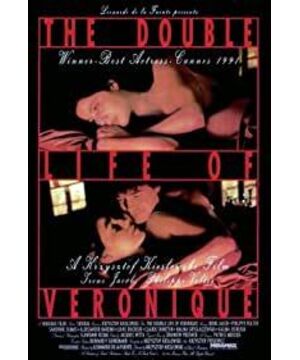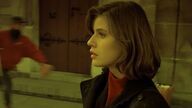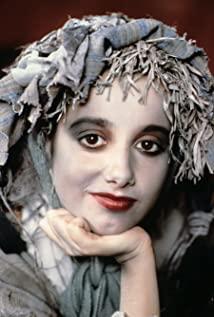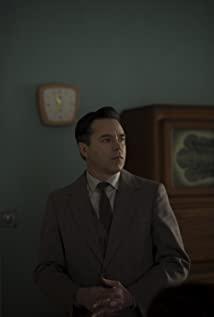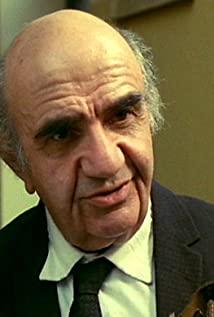The lyrics come from the second song of "Song to Heaven" in Dante's Divine Comedy "Paradise".
O voi che siete in piccioletta barca
desiderosi d'ascoltar,sguiti
Non vi mettete in pelago,che forse
perdento me,rimarreste smarriti.
L'acque ch'io prendo gia mai non si corse;
Minerva spira e conducemi Appollo
e nove Muse mi dimostran O I'Orse
, you sit in small wooden boats
because you are eager to hear my song,
follow the raft that I sing to the other shore;
please return to your own familiar homeland,
do not follow me to risk the vast sea, because in case I lose I am lost.
The ocean I want to cross has never been traversed;
but I have Mileva to blow, Apollo to pilot, and
nine muses to instruct Ursa.
(The lyrics and translation are quoted from Liu Xiaofeng's "Heavy Flesh")
In the film, Weronika sings this song with all her life force. Under the foreshadowing of the mezzo-soprano and chorus, her celestial singing leads people to meander up to heaven. But it was those towering notes that caused her heart failure and sudden death on stage. The lament also came to an abrupt end at 2:50 seconds. When we heard it again, it was the moment when Véronique watched that ballerina puppet show in Paris and felt deeply saddened by the loss of her other self.
In the movie, Véronique mentions that this melody was composed by a Dutch composer 200 years ago. In fact, the fictional Van den Budenmayer is Polish composer Zbigniew Preisner.
This is a tacit understanding between the film's director Krzysztof Kieslowski and his old friend Preisner. In Chieslowski's image world, the Budenmayer is the incarnation of Preisner. Characters in the film often refer to the composer. Sing his songs, buy his records or play his compositions. In addition to Veronica's Double Life, his name is featured in the TV movie Decalog 9: Thou shalt not covet thy neighbor's wife and Bleu Appear. The two artists are life and death. It was once commented as "eternal bosom friend".
Album introduction:
Composer Prisner participated in the whole process of film production, and his grasp of emotions is almost impeccable. The pure and holy female voice cooperates with the Italian words of "Song to Heaven" (the second song) in Dante's "Divine Comedy". Qingyue's sad flute and ensemble run throughout. It is also using music to express artistic conception and emotion. A touching and beautiful film, music forms part of its soul.
Presner: Wandering between heaven and earth with musical notes
Friends who love art films must admire the works of the late Polish director Kislowski. In the "Three Colors" series, the use of musical elements has surpassed the ordinary environment and has become the language of the protagonist's inner monologue. , Kislowski believes that music is one of the Cast (lineup) of his film, so he is very particular about the use of the soundtrack in the film. God made Kislowski meet Zbigniew Presner, the two philosophers who were good at images and musical notes respectively became confidants under the combination of light and shadow. Presner was born in Poland in Eastern Europe in 1955. He showed outstanding musical talent in middle school, and when he was in college, he decided to be a musician. He graduated from the School of History and studied modern European history, and his works, like the troubled nation of Poland, always contain a great power of grief. In the "Three Colors" series, the rhyme of "destiny" runs through the whole film, and Presner also uses clarinet, piano and other solos in the orchestration to express the loneliness and pain of the protagonist, especially in "Blue" , music has become a powerful tool to see into the heart of the heroine Julie, and the European Union symphony at the end of the film has also become the pride of Presner. Tango in "White" and Bolero in "Red" are closely related to the theme of the whole film, interpreting "freedom, equality and fraternity". In fact, the cooperation between Presner and Keith started very early. From the moral anxiety of the "Ten Commandments" series to the divinity in "The Two Lives of Flowers", Presner has always used music to think and notes in Heaven and earth wandering.
View more about The Double Life of Véronique reviews


